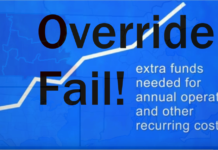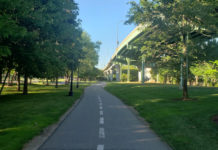East Boston News
In response to Massport’s search for a new CEO, the Logan Community Clean Air Coalition and AIR, Inc. have seized the opportunity to create and share our description of the ideal candidate for the position, from the perspective of East Boston residents.


Submitted by LCCAC and Air, Inc on January 2, 2024
Document Background:
In response to Massport’s search for a new CEO, the Logan Community Clean Air Coalition, AIR, Inc., and other East Boston advocacy organizations have seized the opportunity to create and share our description of the ideal candidate for the position, from the perspective of East Boston residents. We have drafted a job description for the Massport CEO and are distributing it widely. We ask that our perspective be considered in the ongoing candidate search, because our collective wellbeing hinges on drastic changes in Massport’s environmental policies and implementation.
Background:
The Massachusetts Port Authority (“Massport”) was created by the legislature in 1956 to stimulate the economy through ownership and operation of the Port of Boston, Logan International Airport, and Hanscom Field. Massport was granted land, money, political autonomy, and the power of eminent domain to accomplish this goal. Massport currently uses more than 2,384 acres in East Boston, South Boston, and the Town of Winthrop.
Massport Airports
Logan is Massport’s flagship airport and profit center, earning $825 million in annual revenues and covering the Authority’s losses at Hanscom, the Cruise Port, and Boston’s container and port facilities. Massport does not presently use its revenues to cover the economic losses related to traffic congestion and environmental impacts on health for local residents. Given its economic importance to the Authority, Massport has promoted expansion of Logan, as opposed to using a multi-airport solution, and Logan now serves 78% of New England’s air travel market. Despite its market share dominance, Logan is landlocked and now operates beyond its design capacity causing traveler safety concerns, and frequent runway incursions.
Without legislatively mandated environmental accountability, the politically autonomous Port Authority has filled 1,800 acres of tidal flats, and leveled harbor islands, neighborhoods, and an Olmsted Park to expand Logan, inciting public outrage since the mid 1960’s. Logan currently produces 810,000 tons of greenhouse gasses per year and over 35,000 pounds of air pollution per day, increasing childhood asthma, COPD, and other morbidities in nearby communities. Further expansion of Logan will likely require expansion into surrounding neighborhoods and come with steep political, permitting and public relations costs.
Logan revenues subsidize development of Massport’s other airports, helping Hanscom capture market share for private jet service, and also pushing activity there beyond tolerable capacity, driving public opposition. Massport has invested $100 million to increase Worcester Regional Airport’s capacity despite the facility’s disadvantageous location and poor ground access connections.
The Port and Cruiseport
Boston, the US’s leading port until the 1840’s, has steadily fallen in rank to the 43rd largest in cargo tonnage by 2021. Despite this decline, Massport spent $850 million on environmentally destructive harbor dredging and high tech cranes (later raising concern over cyber security) in hopes of courting Chinese supertankers which might use the new Panama Canal. Despite serving the 6th largest economy in North America, Massport’s Flynn Cruiseport, located in the traffic-congested Seaport and suffering a lack of convenient and affordable parking, ranks 28th in passenger boardings among major cruise destinations in North America.
Position and Responsibilities:
The CEO/Executive Director will:
Direct the management of Massport’s businesses, finances, and human capital to ensure that Massport operates in a fiscally and environmentally responsible manner through development of a strategic plan which will:
- Lead an organizational culture shift to value accountability and accuracy, and repair relations with community stakeholders
- Produce accurate evaluations of the economic, environmental, public health and climate costs and benefits of aviation and port operations
- Develop sustainable demand management plans which address regional air travel demand over time in low-to-no growth scenarios while minimizing environmental and public health impacts
- Repair community relationships that have been harmed by decades of disregard for residents and the greater Boston community. Strategize and implement large-scale reparations for residents.
- Develop policy and mitigation strategies which evaluate, assess, and reduce net ground access, and aviation noise and pollution impacts in all airport capacity growth scenarios, specifically by:
- Development of mitigation implementation strategies which link progressive mitigation with growth in impacts
- Prioritizing public safety by removing harmful aviation pollutants from indoor environments (including schools and homes) in high aviation pollution exposure zones
- Increasing high occupancy vehicle access modes to Logan
- Eliminating idling at all Massport facilities
- Reducing noise impacts through completing the legally required runway use planning
Qualifications, Skills and Experience:
A Bachelor’s degree with coursework in urban planning, public health, business administration and cross-sector partnership is required. In addition, experience managing challenging organizational cultural change is desired. An educational or professional background in environmental mitigation is required. A demonstrated track record of successfully working with and advocating for minoritized and environmental justice communities is a requirement to be considered.
Experience in aviation and transportation is not an absolute requirement for consideration. Understanding the nuances and distinctions between Authority, FAA, airline, and airport priorities is critical to success in this role. Having experience in business, governmental, environmental, and public policy is a plus. Having a passion for innovation and social accountability is critical.
Applications from qualified individuals with bilingual Spanish, Arabic, or Mandarin language skills, and/or who are representative of local under-resourced communities will be prioritized.
In addition, the successful candidate will possess:
Critical thinking and ‘outside the box’ problem solving skills; integrity; emotional intelligence; glowing references from environmental justice organizations and community transportation advocates.
















